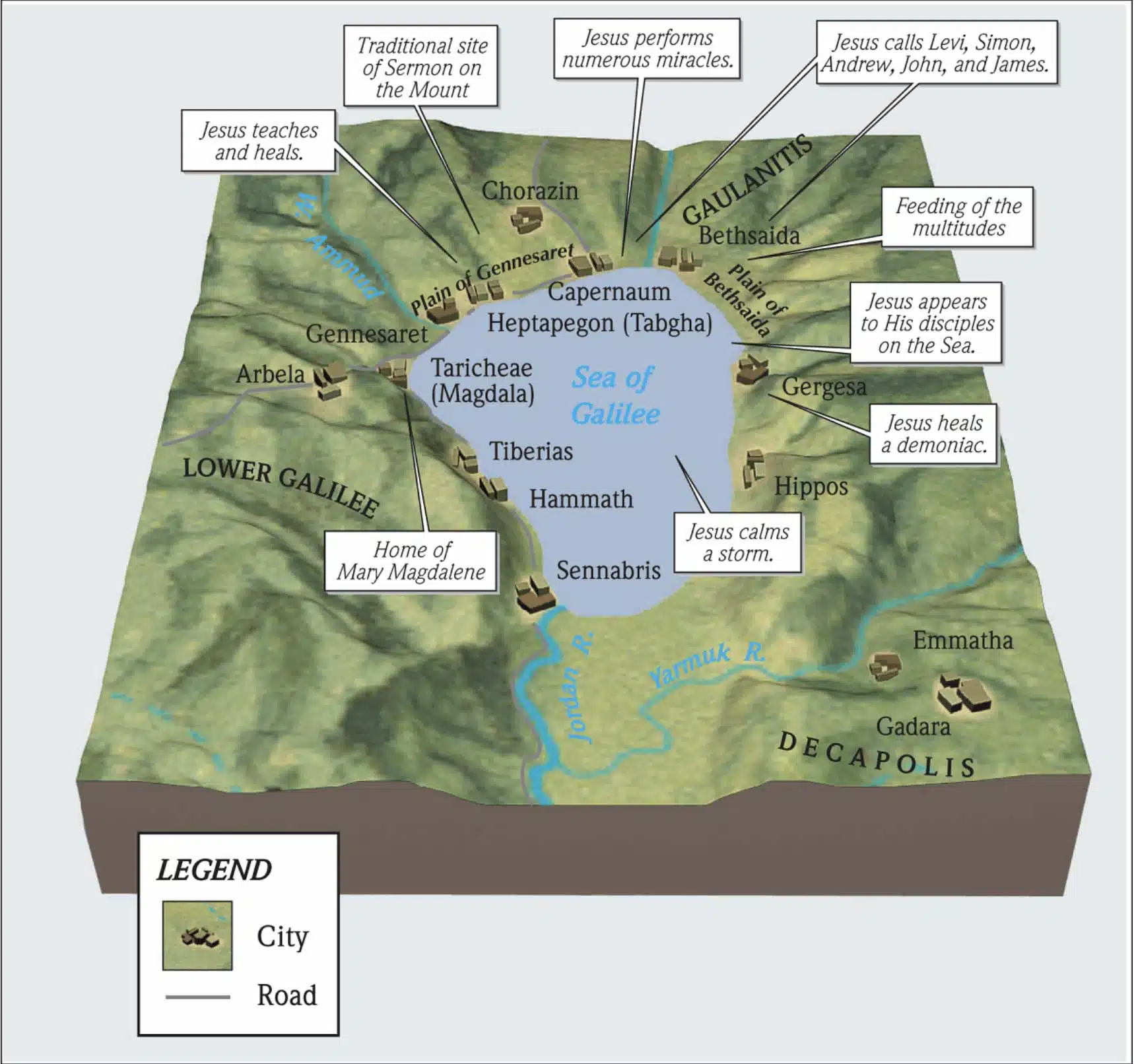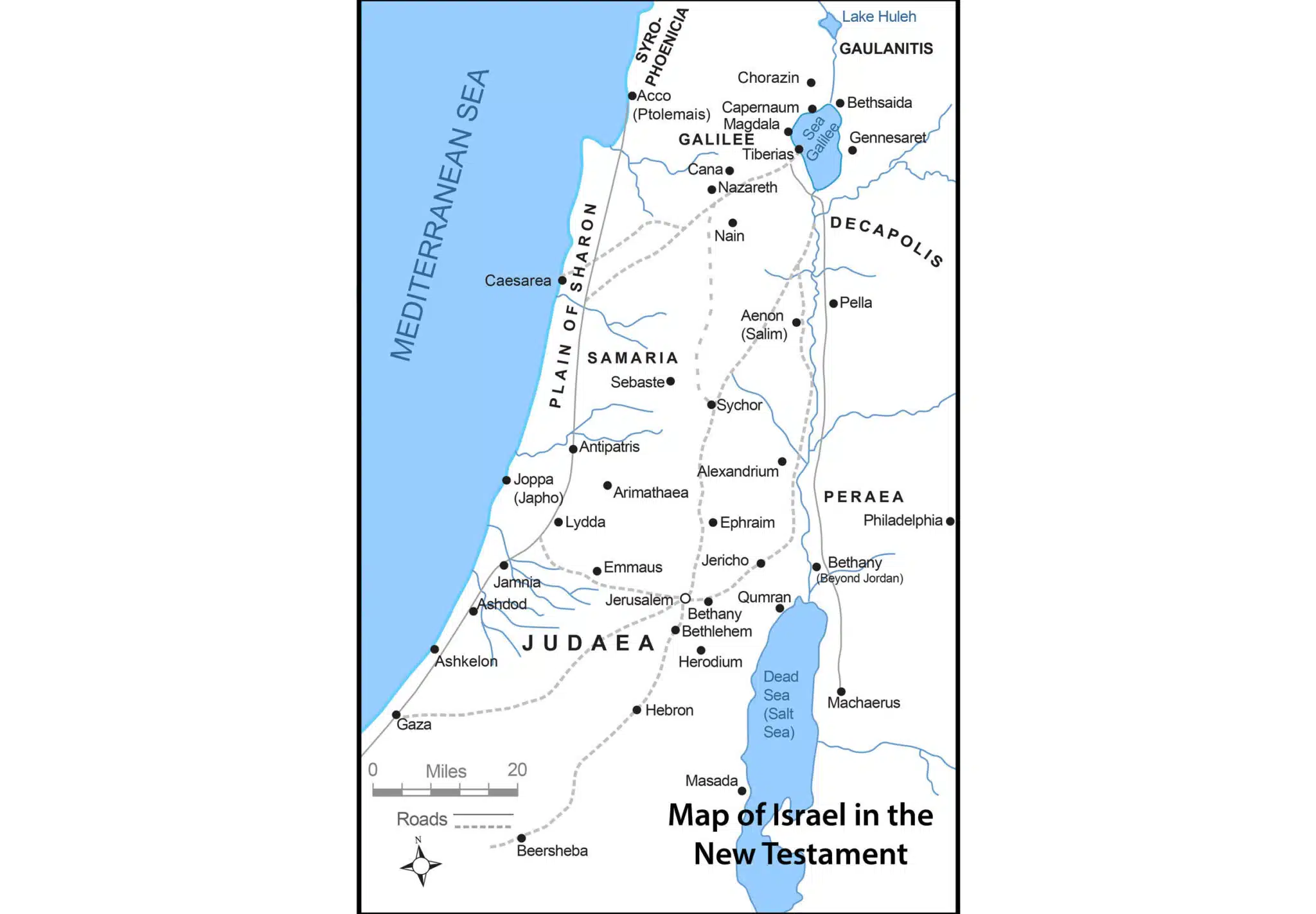Jesus begins the “Sermon on the Mount” with a chiasm commonly known as the Beatitudes. To describe the citizens of His Kingdom, Jesus repeats the word “Blessed” (Makarios) – a total sense of fulfillment. The central characteristic of these citizens are righteousness (social harmony) and mercy (compassionate generosity).
The parallel account of this teaching is found in Luke 6:20-24.
Jesus begins speaking to His disciples with a series of statements describing the Good Life (Blessed Life) as it is understood in His Kingdom.
The statements are organized into a “chiasm.” A chiasm is a poetic pattern of statements or ideas whose arrangement resembles the left half of the form of the Greek letter “Chi” which looks like the English letter “X.” Chiasms are a mirrored pattern that follow an A-B-C…C’-B’-A’ format. The main idea of chiasms is located in their center so that as they narrow, chiasms get closer in proximity and significance of their most important statement, before they unwind. Chiasms are found throughout scripture. They were a common thought form that Jews used to express their thoughts.
Jesus shares eight distinct ideas about the Blessed Life over the course of nine statements. The chiasm is expressed in the first eight “Beatitudes.” (The ninth statement repeats and expands the eighth.)
The chiasm is as follows:
A. Blessed are the poor in spirit, for theirs is the kingdom of heaven.
B. Blessed are those who mourn, for they shall be comforted.
C. Blessed are the gentle, for they shall inherit the earth.
D. Blessed are those who hunger and thirst for righteousness, for they
shall be satisfied.
D’. Blessed are the merciful, for they shall receive mercy.
C’. Blessed are the pure in heart, for they shall see God.
B’. Blessed are the peacemakers, for they shall be called sons of God.
A’. Blessed are those who have been persecuted for the sake of righteousness, for theirs is
the kingdom of heaven.
Matthew’s use of verb tense and voice throughout this chiasm suggests both a present and a future aspect within the Kingdom of Heaven.
- A and A’ use the present active verbs—for theirs is—to describe the present reality for those who are Blessed.
- B and B’ use the future passive tense—for they shall be—to describe what God will do one day for the Blessed.
- C and C’ use the future active tense—for they shall—to describe what the Blessed will one day have or do.
- D and D’ use the future passive tense—for they shall be/receive—to describe what God will one day give the Blessed.
The heart of Jesus’s chiasm centers on righteousness (social harmony) and mercy (compassion) both of which are major themes throughout the Sermon on the Mount and all of Jesus’s teaching. They are also the main point of the Jewish Law, and the covenant God made with Israel as reflected in Deuteronomy.
In English each statement of this chiasm begins with the word Blessed. The Greek word translated Blessed is Makarios (G3107). Makarios describes a complete and total fulfillment in life. It does not refer to a passing happiness or good fortune. It is an enduring state or condition that is unassailable.
Makarios is an interesting word choice to describe Christ’s Kingdom amidst the multi-cultural setting of the Sea of Galilee. The world in which Jesus’ disciples and Matthew’s audience inhabited was predominantly a Jewish subculture within a Roman and Greek world. The Romans supplanted the Greeks, but absorbed substantial Greek influence. Judea was under Greek rule for over a century and a half, spanning from the time of Alexander the Great’s conquests (332 B.C.) until the Maccabean revolt (167-160 B.C.) When the Roman general Pompey first incorporated Judea as a province of the Roman Empire in 63 B.C., he reintroduced the Greek culture and worldview that Rome had assimilated. A major figure with the Greek worldview was Alexander the Great’s teacher—Aristotle.
Aristotle begins one of his most famous books, “Ethics,” asking the question “Can virtue (good habits) make one happy?” In other words, “Does living a moral life and being morally good lead to the good life?” Aristotle concludes that virtue does make one happy (Greek word: Eudaimonia) but it cannot make one blessed (Makarios.) According to Aristotle, Makarios is only possible by the combination of one’s virtue and circumstantial bliss. The worldview of Aristotle assumed Makarios was external. But in Matthew’s Gospel, Jesus says the opposite of Aristotle. Jesus taught that Makarios comes from the inside out. It cannot be extracted from earthly circumstances.
As we consider the assumptions of the different perspectives represented by the towns lining the Sea of Galilee, we find that they all aligned with Aristotle’s position. The Herodians and Sadducees dining in the halls of Tiberias, on the western shore, would have said Makarios comes from enjoying the circumstances of luxury and power at the expense of others. The Roman soldiers garrisoned in the Decapolis on Galilee’s eastern shore would have said the same thing.
The Zealots in Gamala, who bitterly hated those Romans with all their heart, would have said Makarios would come when they were in power and the Romans were no more, i.e. if their external circumstances were changed. And the Pharisees, teaching along the cities and towns of Galilee’s northern shore would have believed Makarios was having a righteous reputation in the community, even as they lived like gluttonous Romans by devouring widows’ houses (Matthew 23:14).
Jesus rejected the fake, earthly, and elusive Makarios assumed by Aristotle and many others. The Makarios that Jesus taught was real, heavenly, and available. The kingdoms of the earth had missed the good life in their efforts to rule or overthrow. Those who inhabit the Kingdom of Heaven would find the good life through humbly serving one another in love.
Biblical Text
3 Blessed are the poor in spirit, for theirs is the kingdom of heaven.
4 Blessed are those who mourn, for they shall be comforted.
5 Blessed are the gentle, for they shall inherit the earth.
6 Blessed are those who hunger and thirst for righteousness, for they shall be satisfied.
7 Blessed are the merciful, for they shall receive mercy.
8 Blessed are the pure in heart, for they shall see God.
9 Blessed are the peacemakers, for they shall be called sons of God.
10 Blessed are those who have been persecuted for the sake of righteousness, for theirs is the kingdom of heaven.
Check out our other commentaries:
-
Revelation 3:9-11 meaning
The only letter without a section of rebuke, Jesus praises the church in Philadelphia for their perseverance and promises that He will make His love...... -
Genesis 2:4-6 meaning
We begin to see what is happening on the earth. No shrubs or plants had started to grow because it had not yet rained. A...... -
Matthew 5:7 meaning
Jesus’s statement is the second central theme of Jesus’s chiasm. It focuses on Jesus’s Kingdom platform of the mercy principle: Be merciful and receive mercy....... -
Exodus 26:1-6 meaning
The LORD gives instructions on how to build the tabernacle itself. The first item discussed was the making of the curtains that formed the walls...... -
Exodus 40:1-16 meaning
The LORD commands Moses to set up the tabernacle. All of its components have now been built, so Moses assembles them.......




